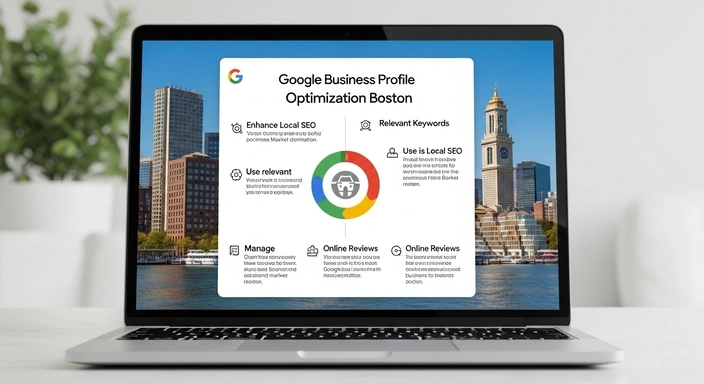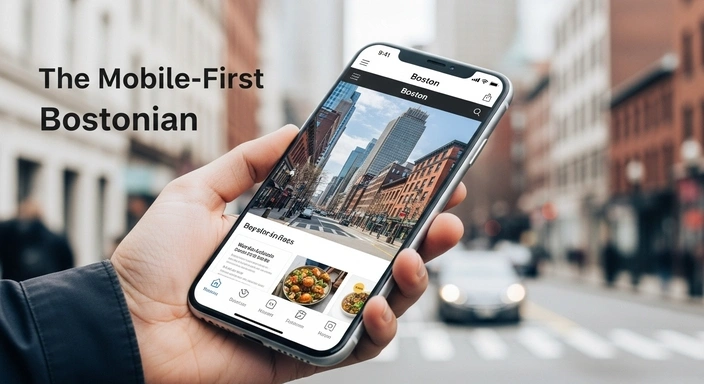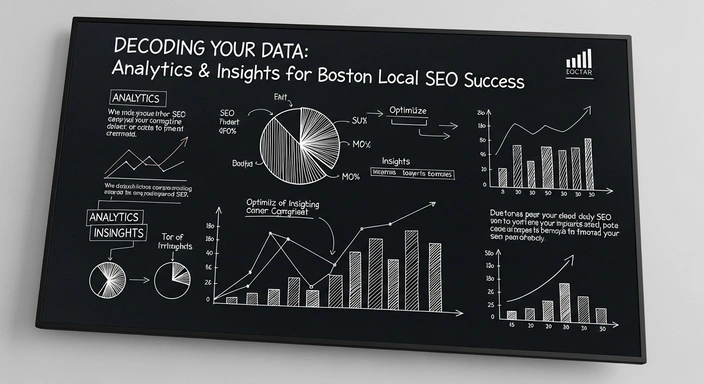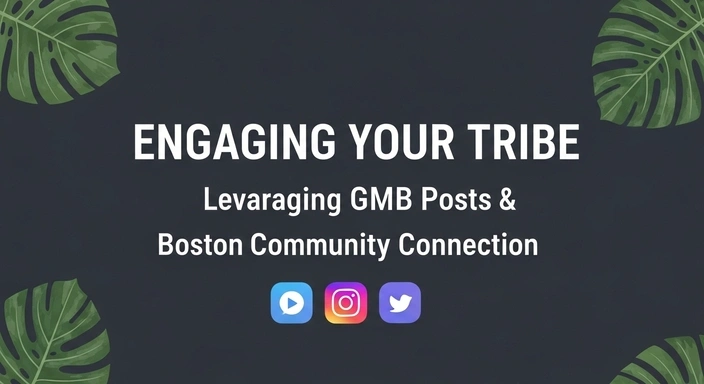This article is the second in our 12-part series: Beyond the Boom: How Boston Businesses Can Dominate Local Search & Drive Foot Traffic in a Shifting Economy. If you missed the foundational first post, catch up on The New Reality: Why Local Search is Non-Negotiable for Boston Businesses in 2025. Discover the full series here.
In our previous deep dive, we established that for Boston businesses navigating the shifting economic landscape of 2025, local search isn’t just an option—it’s an absolute imperative. The era of relying solely on traditional foot traffic or broad advertising is over. Now, more than ever, your business needs to be found precisely where Bostonians are searching: online, often on their mobile devices, and with immediate intent.
At the very heart of this new reality lies your **Google Business Profile (GBP)**. Think of your GBP not as a mere online listing, but as your primary digital storefront in Boston. It’s the virtual equivalent of a prime commercial space on Newbury Street or a bustling shopfront in the North End, but with 24/7 visibility to millions of potential customers. In an age of “zero-click searches,” where users often find all the information they need directly from Google’s results without visiting your website, your GBP is often your first, and sometimes only, chance to make a powerful impression and convert a searcher into a customer.
For Boston businesses — from the burgeoning biotech startups in Kendall Square to the neighborhood cafes in Jamaica Plain, the legal firms in the Financial District, or the specialty retail shops in the Seaport — an optimized Google Business Profile is the single most powerful tool you possess for driving local visibility, attracting foot traffic, and securing direct customer engagement. This isn’t just about showing up; it’s about standing out, building trust, and converting high-intent local searchers into loyal customers. Let’s embark on a comprehensive journey to transform your GBP into a relentless lead-generating machine.
—
The Imperative of GBP: Why It’s Boston’s Prime Digital Real Estate
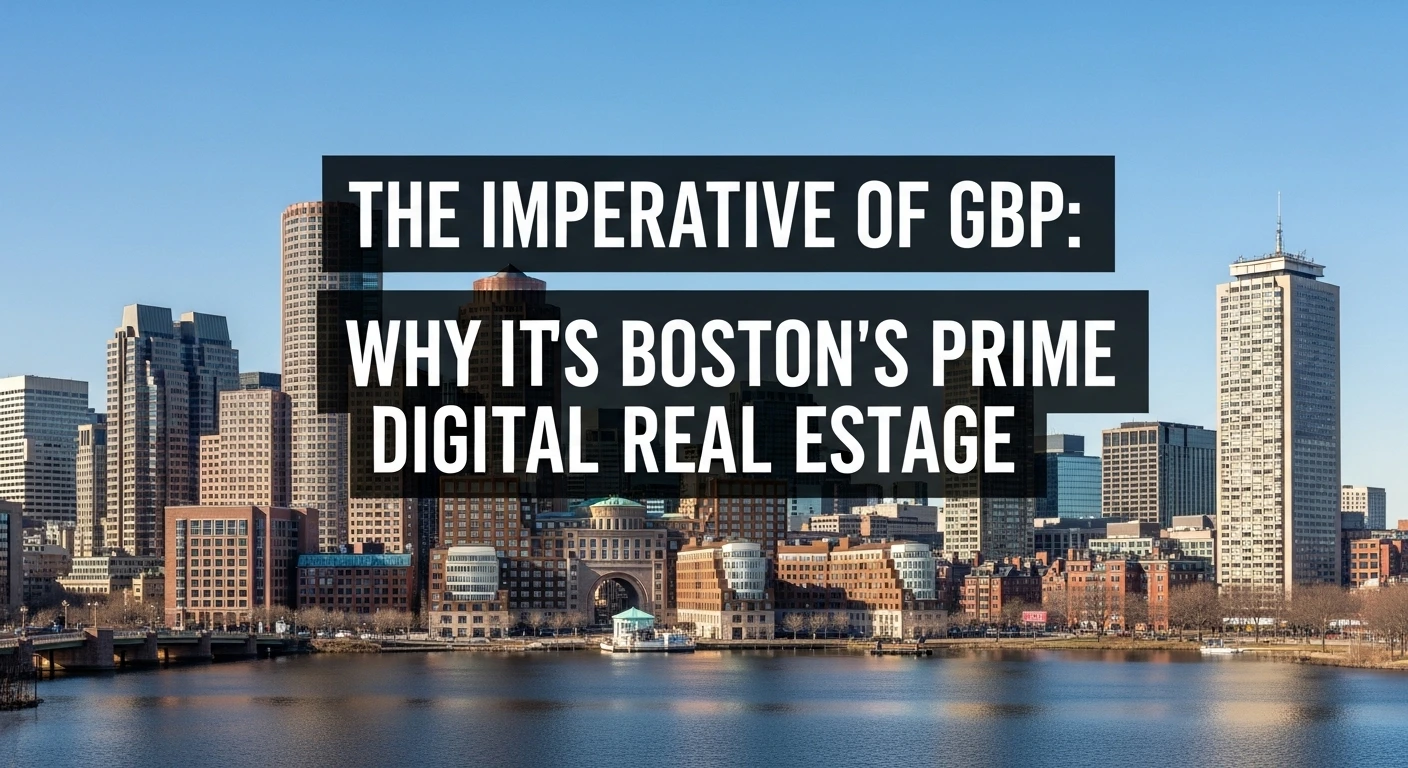
To grasp the profound importance of your Google Business Profile, we need to fully understand its role in Google’s ecosystem and its impact on consumer behavior in 2025.
Beyond a Listing: Your Comprehensive Digital Hub
Gone are the days when GBP (then Google My Business) was just a basic directory entry. Today, it serves as a dynamic, interactive, and comprehensive hub for your business information. It pulls together everything a potential customer needs to know:
- Core Information: Name, address, phone number, website, hours of operation.
- Visuals: Photos, videos, virtual tours that showcase your establishment and offerings.
- Customer Engagement: Reviews, Q&A, and direct messaging capabilities.
- Business Updates: Posts for offers, events, and news.
- Service Details: Specific lists of services or products you provide.
This integration means that users often get a complete picture of your business, evaluate its credibility, and make a decision to visit or contact you without ever navigating away from Google’s search results or Maps interface. For the time-strapped Bostonian, this efficiency is highly valued.
The “Zero-Click” Reality: Converting Before the Website Visit
As discussed in Post 1, the “zero-click search” phenomenon is intensifying. A significant and growing percentage of Google searches conclude without the user ever clicking on a website link. Instead, they find their answer or make their decision directly from the Search Engine Results Page (SERP), often thanks to comprehensive GBP listings.
- Studies project that zero-click searches will surpass 70% of all Google searches globally in 2025, with over 75% on mobile devices.
- For local searches, this trend is even more pronounced. A user looking for “florist near Fenway Park” might see a florist’s GBP with their phone number, reviews, and a “Call” button. If the reviews are great and the hours match, they’ll call directly. Your website might never enter the equation for that initial conversion.
This reality underscores the absolute necessity of a meticulously optimized GBP. It’s your primary conversion funnel in a zero-click world.
Direct Impact on Local Ranking Factors: Relevance, Distance, Prominence
Google’s local ranking algorithm primarily hinges on three core pillars: Relevance, Distance, and Prominence. Your GBP is central to all three:
- Relevance: How well your business matches a user’s search query. A complete and accurately categorized GBP, rich with descriptions of your services and products, tells Google precisely what you do and who you serve. For instance, a “Seaport seafood restaurant” needs to clearly specify “Seafood Restaurant” as its primary category and detail its seafood offerings.
- Distance: How close your business is to the searcher. While crucial, Google doesn’t always show the closest result if a further one is more relevant or prominent. Your accurate address on GBP is foundational here.
- Prominence: How well-known or authoritative your business is. This is a multifaceted factor heavily influenced by your GBP:
- Review Quantity & Quality: More positive reviews signal popularity and trustworthiness.
- Online Citations: Consistent NAP (Name, Address, Phone) data across other directories.
- Website Authority: The strength and relevance of the website linked to your GBP.
- User Engagement: How often users click on your profile, request directions, call, or interact with your posts.
An optimized GBP directly influences your standing in these crucial ranking factors, determining whether your Boston business appears at the top of local search results.
—
Claiming & Verifying Your Google Business Profile: The First Step to Boston Domination
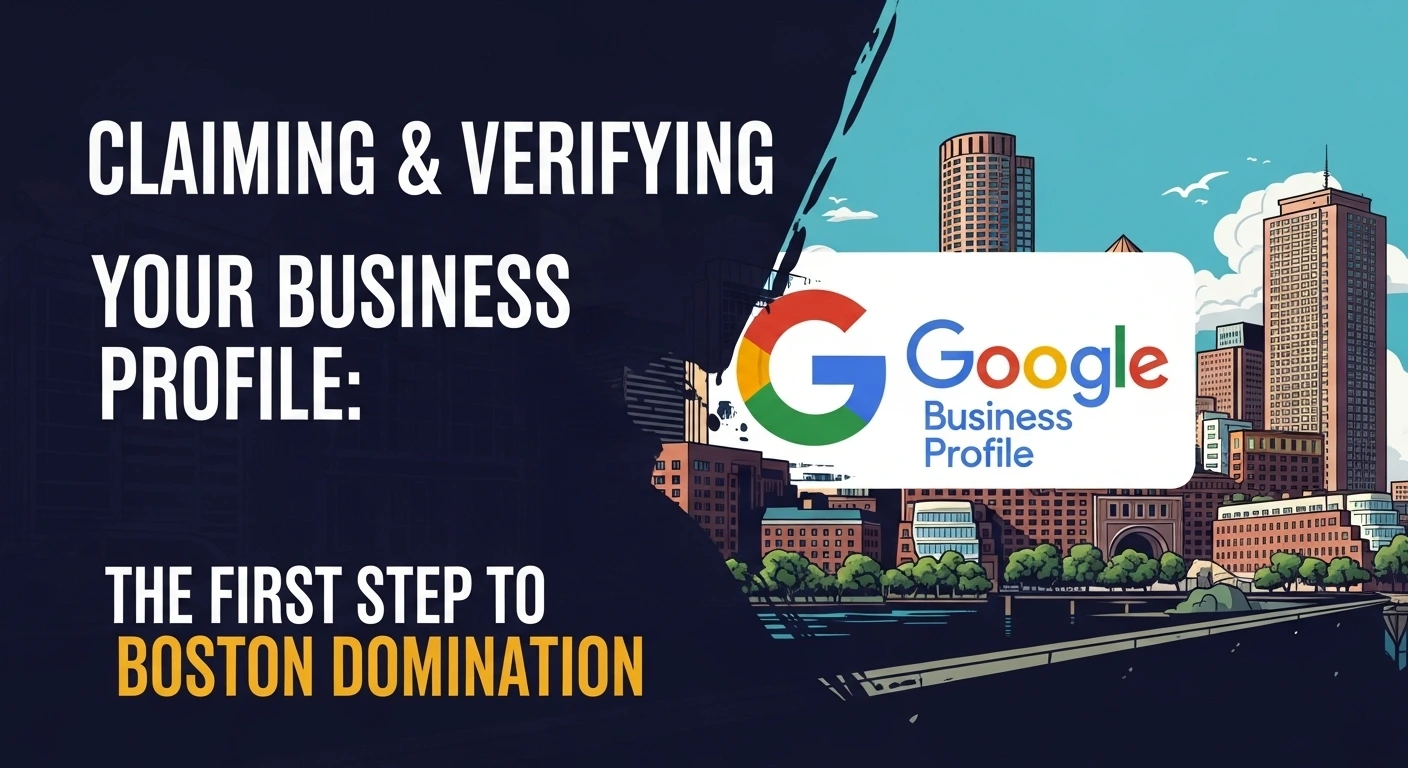
Before you can optimize, you must claim and verify your GBP. This seemingly simple step is often where businesses hit their first hurdle, or worse, neglect it entirely, leaving their digital storefront unmanned. Google prioritizes verified businesses, ensuring legitimacy and accuracy for searchers.
The Claiming Process: Taking Ownership
If your business has been around for a while, Google may have already created a basic profile for you based on public records. Your first step is to search for your business on Google Maps and Google Search. If a profile exists, look for a “Own this business?” or “Claim this business” link.
- If a profile doesn’t exist: You’ll create a new one from scratch by visiting google.com/business and clicking “Manage now.” You’ll then enter your business name, address, category, and other basic details.
The Verification Imperative: Proving Your Legitimacy in 2025
Verification is Google’s way of confirming that you are indeed the rightful owner or authorized representative of the business. This prevents fraudulent listings and ensures accurate information for users. While postcard verification (a physical postcard with a code mailed to your business address) still exists, Google has increasingly shifted towards digital methods for speed and efficiency.
- Video Verification (Dominant Method in 2025): This is now Google’s preferred and most common verification method, often prompted 8 out of 10 times. Be prepared to record a short video that proves:
- Your Location: Show exterior signage, street name, and nearby landmarks.
- Your Business Operations: Show your products, equipment, or demonstrate a service being performed.
- Proof of Management: Show access to a staff-only area, a register, or a key.
Google offers clear instructions on what to include. Make sure your video is clear, well-lit, and shows continuous footage without edits. This method is Google’s most robust way of validating physical presence and legitimate operations.
- Phone or Text Verification: Less common now, but still an option for some businesses. Google sends a verification code via automated call or SMS.
- Email Verification: Similarly, less common. Google sends a code to an email address associated with your business domain.
- Instant Verification: If your business website is already verified with Google Search Console, you might be eligible for instant verification.
- Bulk Verification: For businesses with 10+ locations (e.g., a chain of Boston eateries), bulk verification options are available.
Crucial Pre-Verification Tip: Ensure your website’s footer clearly displays your business’s exact name, address, and phone number (NAP) *before* attempting verification. Also, if possible, use an email address with your business domain (e.g., info@yourbostonbiz.com) for verification, as this signals legitimacy to Google.
Troubleshooting Verification: When Boston Barriers Arise
Verification can sometimes be tricky. Common issues include:
- Incorrect Address: Google Street View might not match, or your address is new. Double-check accuracy.
- PO Boxes: GBP requires a physical street address, not a PO Box.
- Service Area Businesses (SABs) without a physical storefront: If you serve customers at their location (e.g., plumbers, mobile dog groomers), you *must not* display your physical address on GBP. Instead, you define specific service areas (Boston neighborhoods, towns). Google is increasingly strict on this, even disallowing adding countries or states as service areas in 2025 to enforce hyperlocal relevance.
- Suspensions: If your profile gets suspended during or after verification, it’s often due to policy violations (like keyword stuffing in your name) or perceived inconsistency. Address the underlying issue and submit a reinstatement request.
Completing verification unlocks all GBP features and is the absolute non-negotiable gateway to local search dominance in Boston.
—
The Anatomy of a Perfect GBP: Meticulous Optimization for Maximum Impact
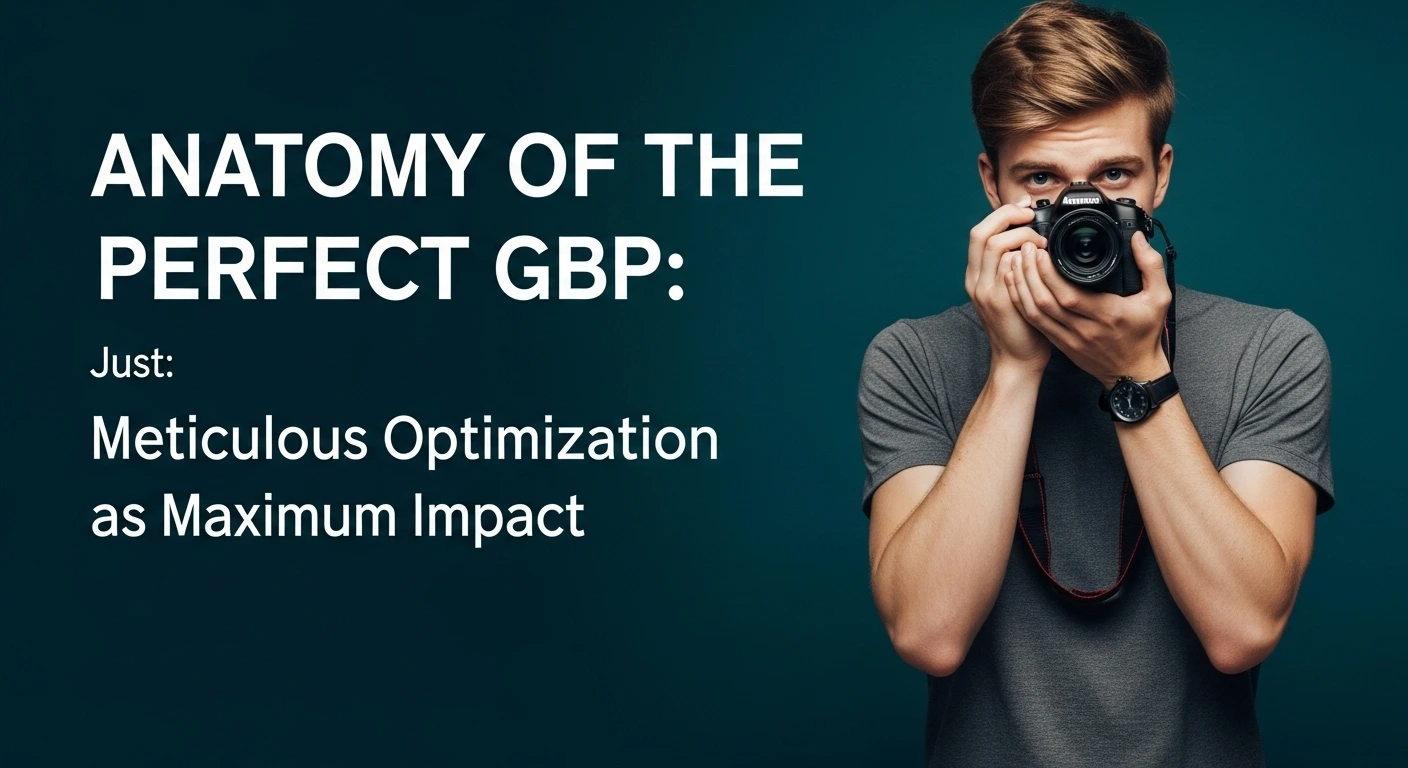
Once verified, your GBP becomes a powerful lever for local SEO. But merely existing isn’t enough; every field, every feature, must be optimized to its fullest potential to capture Google’s attention and compel Boston searchers to choose you.
1. Business Name: Precision & Policy Adherence (No Keyword Stuffing!)
Your business name on GBP must **exactly match** your real-world, legal business name as it appears on your signage, legal documents, and branding. Google is increasingly strict on this policy. Adding keywords or location modifiers to your name (e.g., “Boston’s Best Plumbing – Southie Experts”) is a policy violation and can lead to profile suspension or removal.
- Best Practice: Use your actual, registered business name. Let other optimized fields and categories handle keyword relevance.
2. Categories: The Foundation of Discoverability (Up to 10!)
Categories are arguably the most important ranking factor for relevance. They tell Google exactly what your business does. You can choose one primary category and up to nine additional secondary categories.
- Primary Category: Select the one that best describes your core offering. Be specific (e.g., “Italian Restaurant” instead of just “Restaurant”).
- Secondary Categories: Add all other relevant categories that apply. For a multi-service business, this is crucial (e.g., a salon might be “Hair Salon,” “Nail Salon,” “Day Spa”).
Incorrect or insufficient categories severely limit your visibility for relevant local searches. Google’s AI relies heavily on these to understand your business.
3. Address & Service Areas: Navigating Boston’s Nuances
This section is vital and requires careful consideration, especially for Boston’s diverse business types:
- Physical Storefronts (e.g., Retail, Restaurants): Display your exact street address. Ensure it’s identical across all online platforms (NAP consistency).
- Service Area Businesses (SABs) (e.g., Plumbers, Landscapers, Home Services): If you don’t have a physical storefront where customers visit, you *must not* display your address. Instead, specify your service areas. Google has clarified this again in mid-2025, disallowing adding countries or states as service areas to force a hyperlocal focus. Be precise: specify Boston, Cambridge, Somerville, Newton, etc., or even specific Boston neighborhoods like Southie, Dorchester, Jamaica Plain.
- Hybrid Businesses (e.g., Consultants with an office and client visits): You can choose to display your address *and* specify service areas.
Getting this wrong is a common reason for GBP suspension or ranking issues. Google wants to ensure searchers get accurate expectations about how they can interact with your business.
4. Phone Number & Website: Direct Connections to Conversion
Ensure your primary phone number is accurate and functional. This is a direct conversion point from your GBP, as many users will call immediately.
Your website link should point to your primary domain. If you have a specific local landing page or a dedicated service page that’s highly relevant to local searchers, you can link to that. A well-optimized, mobile-friendly website is crucial for building prominence and serving as the next step in the customer journey from your GBP.
5. Hours of Operation: Trust & User Experience
Accuracy here is paramount. Clearly list your regular operating hours for each day of the week. Crucially, regularly update special hours for holidays (e.g., Patriots’ Day, Marathon Monday, Fourth of July) or temporary closures. Google now prioritizes businesses open at the time of search and even considers opening hours as an increasingly influential ranking factor, especially for “open near me” searches.
Incorrect hours lead to frustrated customers and negative reviews, signaling unreliability to Google.
6. Products & Services: Detailed Offerings for High-Intent Searches
Beyond categories, the Products and Services sections within GBP allow you to list your specific offerings in detail. This is a golden opportunity to embed relevant keywords for long-tail searches (e.g., “organic dog food delivery Boston,” “small business payroll services”). Google is even leveraging AI to help businesses generate menus and product lists, highlighting their strategic importance.
Fill these out thoroughly, with clear descriptions and even pricing if applicable. This rich detail helps Google match your business with highly specific customer needs and provides immediate answers to searchers, reducing the likelihood of a “zero-click, no-conversion” outcome.
7. Business Description: Crafting Your Compelling Narrative
You have a limited character count (750 characters) to describe your business. Use this wisely:
- Keyword Integration: Naturally weave in your primary local keywords (e.g., “Boston’s premier Italian restaurant,” “Back Bay financial advisor”).
- Unique Selling Proposition (USP): What makes your Boston business unique? Highlight your specialties, values, and what sets you apart from competitors.
- Customer-Centric Language: Write for your ideal customer. What problem do you solve for them? What experience do you offer?
- AI Assistance: Google is experimenting with AI to generate business descriptions, suggesting that well-written, informative content that resonates with users is a core signal. However, always review and refine AI-generated content for accuracy, tone, and Boston-specific nuance.
Avoid keyword stuffing; focus on a clear, compelling narrative that informs and attracts.
8. Attributes: Providing Granular Detail for Enhanced Discoverability
Attributes are specific features or amenities your business offers (e.g., “wheelchair accessible,” “Wi-Fi,” “outdoor seating,” “LGBTQ+ friendly,” “women-led”). Google continuously adds new attributes. Filling these out is crucial because:
- Filter Searches: Users often filter local search results based on specific attributes. If you don’t list it, you won’t show up in these filtered searches.
- Enhanced Visibility: Relevant attributes increase your chances of appearing for highly specific, high-intent queries (e.g., “coffee shop with wifi near me”).
- User Experience: It manages customer expectations and provides valuable information upfront.
Regularly check for new attributes and update your profile accordingly.
—
Activating Your GBP: Dynamic Engagement for Sustained Boston Visibility
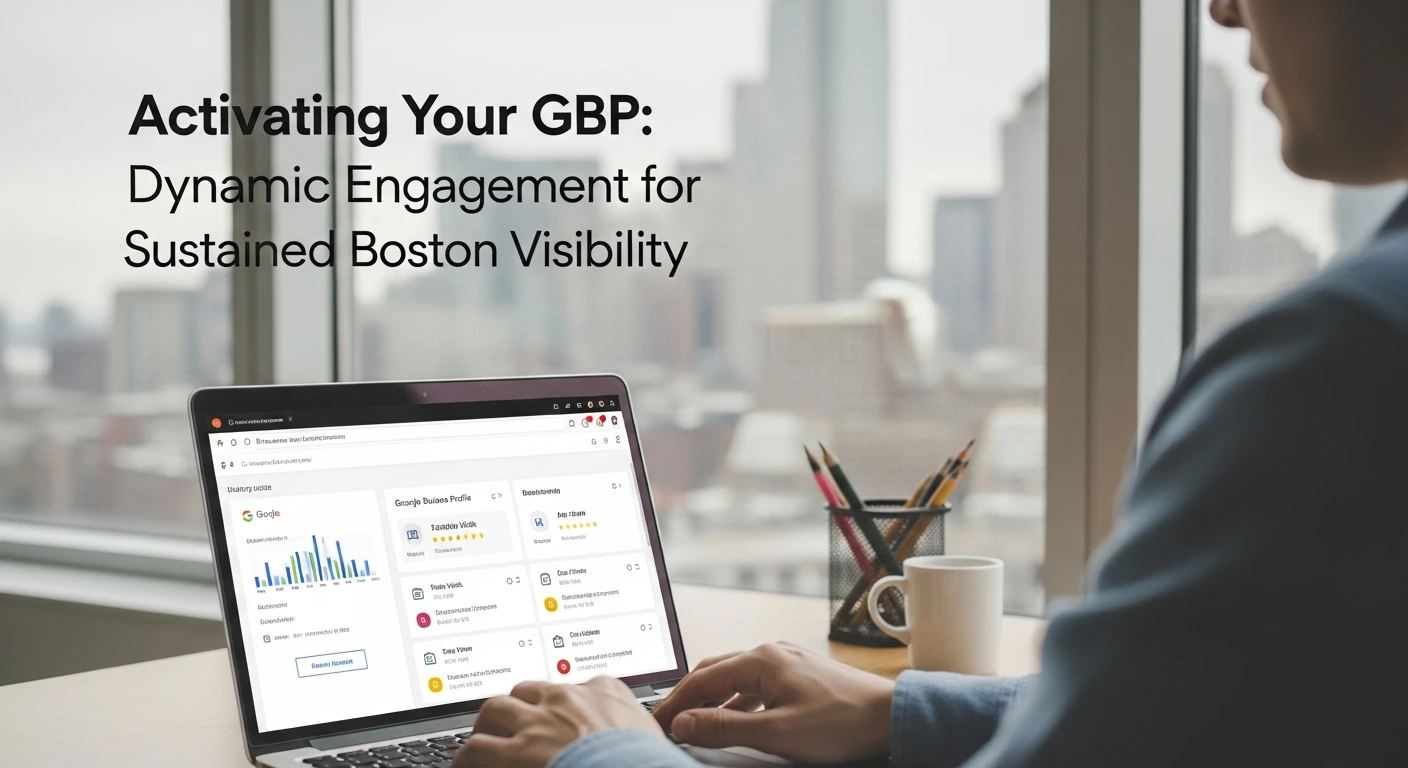
A static GBP, no matter how perfectly filled out, won’t achieve optimal results. Active engagement with your profile is critical for signaling relevance and vitality to Google, and for directly connecting with your Boston audience. This is where your digital storefront truly comes alive.
1. Google Posts: Your Mini-Blog for Local Engagement
Google Posts are a powerful, yet often underutilized, feature. Think of them as mini-blog posts or social media updates directly on your GBP that appear in search results and Maps. They expire after 7 days (or 14 for events), so consistency is key.
- Types of Posts:
- Offers: Promotions, discounts, coupon codes. (e.g., “15% off all pastries this week in our Back Bay location!”)
- Updates: General announcements, changes in operations, new products/services.
- Events: Announce local events your business is hosting or participating in (e.g., “Live Jazz every Friday night in our North End lounge,” “Participating in the Boston Marathon Expo”).
- Products: Showcase new arrivals with photos and links.
- Best Practices for Boston:
- Post Weekly: Aim for consistent, fresh content.
- Include Visuals: Always add a high-quality photo or video. Posts with visuals see significantly higher engagement.
- Use Strong Calls to Action (CTAs): “Learn more,” “Call now,” “Order online.”
- Localize: Mention Boston neighborhoods, local events, or specific landmarks in your posts to reinforce local relevance. (e.g., “Perfect cozy spot for a coffee after exploring the Freedom Trail!”).
- Leverage “What’s Happening”: For restaurants/bars, utilize this specific post type for timely, current promotions.
Active Google Posts signal to Google that your business is vibrant and engaged, and they provide timely, relevant information directly to searchers, increasing the likelihood of a conversion. Google now cross-references GBP updates with local events, meaning genuine community involvement can directly boost rankings (Forbes, March 2025).
2. Photos & Videos: Your Visual Storytelling Powerhouse
We touched on this in optimization, but its active management demands a dedicated section. Photos and videos are arguably the most impactful content on your GBP. They offer a tangible glimpse into your business, building trust and enticing visits.
- Upload Frequently: Regularly add new photos — seasonal shots, new products, happy customers (with permission), team members. Google loves freshness and unique content.
- Diversity of Content: Include exterior shots (especially street view), interior ambiance, product close-ups, action shots of your services, and professional headshots of your team. This diversity provides a complete picture.
- Quality Matters: Use high-resolution images (at least 720p, 10MB maximum file size) that are well-lit and professional. Blurry or amateurish photos deter potential customers.
- Geo-Tagging: If possible, geo-tag your photos with your business’s precise location. This reinforces local relevance to Google.
- Virtual Tours: For physical locations, a 360° virtual tour (Google Street View compatible) is a significant differentiator. They increase dwell time on your GBP and help customers feel comfortable visiting. Businesses with over 100 images on their GBP listing see significantly higher direction requests and website clicks.
3. Managing Reviews: Your Reputation is Gold in Boston
Your online reviews are a cornerstone of your GBP’s prominence and trust signals. They are vital for both Google’s ranking algorithms and human decision-making. 88% of consumers trust online reviews as much as personal recommendations. Businesses with 4+ star ratings see up to 30% higher conversion rates.
- Solicit Proactively: Don’t wait for reviews to happen organically. Train staff to ask for reviews, send follow-up emails with direct review links, or use QR codes in-store. Google encourages businesses to ask for reviews.
- Respond to ALL Reviews:
- Positive Reviews: Thank the customer, use your business name and keywords naturally, and invite them back. This shows appreciation and reinforces positive sentiment.
- Negative Reviews: Respond professionally, empathetically, and promptly. Acknowledge their concern, apologize if appropriate, and offer to take the conversation offline to resolve the issue. Your response often influences future customers more than the negative review itself. New emoji reactions allow for quick engagement.
- Report Fake Reviews: Google has robust tools to report fraudulent or spammy reviews. Utilize these to protect your reputation. Regular webinars from Google in 2025 emphasize strategies for fighting fake reviews.
- Leverage Review Keywords: Google’s AI analyzes keywords within review text to understand what customers say about your business. Customers mentioning “friendly staff,” “great coffee,” or “fast service” provide valuable context for your GBP’s relevance.
Your review management strategy is critical for building enduring trust with Bostonians. (This entire topic is so important that it will be the focus of Post 5: Beyond Yelp: Cultivating a Five-Star Reputation with Boston Customer Reviews).
4. Messaging: Direct Customer Connection (The New Frontier)
Google is continually evolving its messaging capabilities within GBP, making it a direct communication channel for real-time customer service. While the old “Business Chat” feature was retired in July 2025, new desktop messaging features and integrations like WhatsApp are being rolled out. “Chat Clicks” are even appearing in GBP performance reports, indicating this is a tracked conversion.
- Enable Messaging: Ensure you have messaging enabled if you have the capacity to respond promptly.
- Set Expectations: Consider setting up an auto-responder for after-hours messages.
- Monitor Regularly: Prompt responses are crucial for a positive customer experience. Delays can lead to lost leads.
This direct connection caters to the modern customer’s desire for instant communication and convenience.
5. Q&A Section: Proactive Problem-Solving & Keyword Richness
The Q&A section on your GBP allows users to ask questions directly about your business, and anyone (including you) can answer. This is a powerful, yet often overlooked, opportunity:
- Proactively Populate: Don’t wait for customers to ask. Seed the Q&A section with common questions your business receives and provide comprehensive, keyword-rich answers. This allows you to control the narrative and address potential concerns upfront.
- Monitor Regularly: Customers can ask questions, and other users can answer them. You need to monitor this section to ensure accurate information is being provided and to correct any misinformation.
- Keyword Integration: Naturally integrate relevant local keywords into your answers. This can significantly boost your visibility for specific queries.
—
Advanced GBP Strategies: Elevating Your Boston Digital Storefront
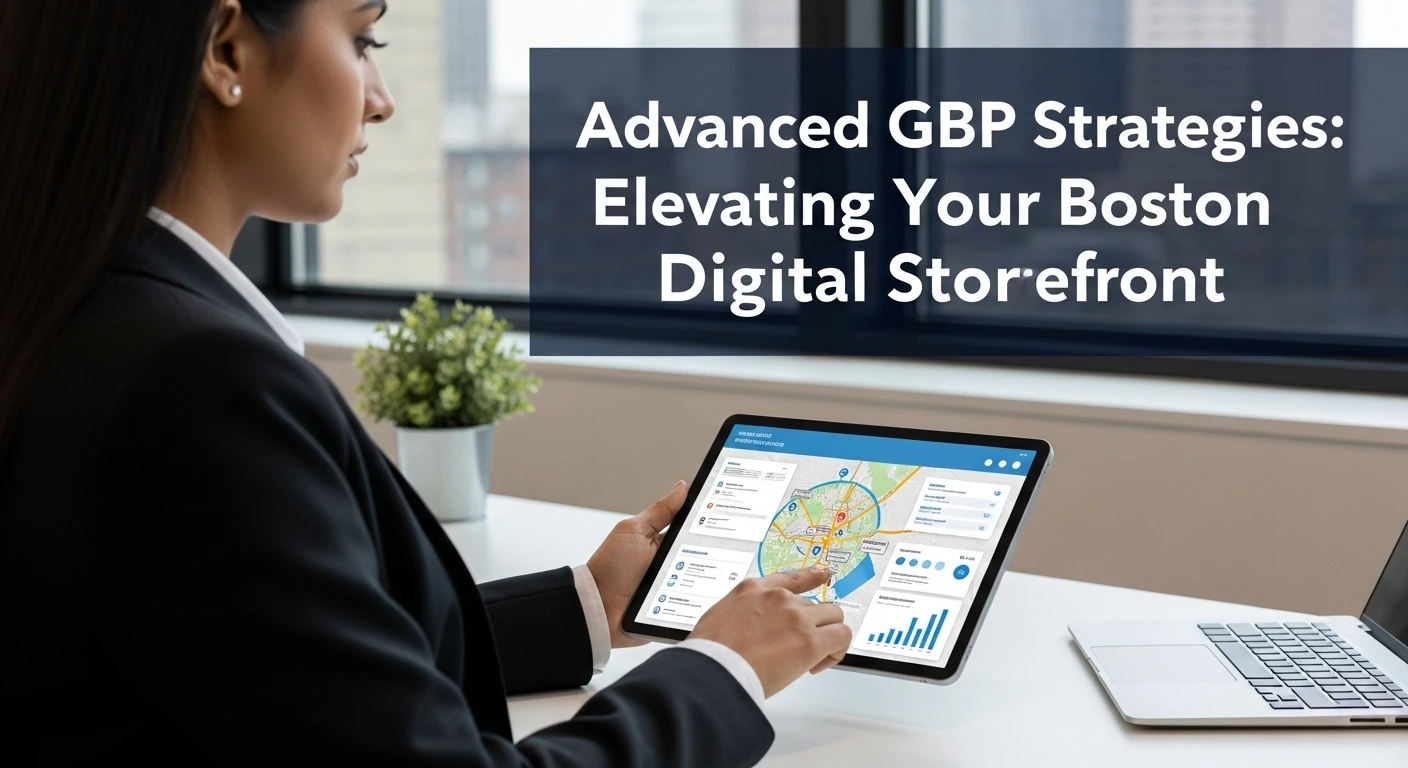
Beyond the foundational elements, several advanced strategies can push your Google Business Profile to the forefront of Boston’s competitive local search landscape.
1. Leveraging “Open Near Me Now” Searches & Peak Popularity Data
Google increasingly factors in real-time operating hours and even peak popularity times when determining rankings for “open now” or “open near me” searches. Businesses with accurate, updated hours — especially those consistently open during common search times — can see a ranking boost.
- Accurate Hours: Maintain meticulously updated operating hours, including special holiday hours.
- Peak Popularity Insights: Use the “Plan your visit” section in GBP insights to understand when your business is busiest. While not a direct ranking factor to manipulate, higher traffic during peak times (which indicates user engagement) can indirectly boost prominence.
2. The Role of Your Website in GBP Prominence
While GBP is your digital storefront, your website remains the anchor of your online authority. A robust, well-optimized website significantly contributes to your GBP’s overall prominence:
- Local SEO-Optimized Website: Ensure your website is highly relevant to your local area. This includes:
- Localized Content: Service area pages, blog posts about local events, community guides.
- On-Page SEO: Optimized title tags, meta descriptions, and headings with local keywords.
- Schema Markup: Local Business Schema helps Google understand your business details.
- Mobile-Friendliness & Site Speed: A fast, responsive website provides a seamless user experience, which is increasingly important for local rankings, especially for mobile-first indexing.
- Internal Linking Structure: A logical internal linking strategy on your website helps Google understand your site’s hierarchy and topic authority, indirectly benefiting your GBP.
3. Understanding & Responding to Google Algorithm Updates
Google constantly refines its algorithms, and local SEO is no exception. Major updates like the June 2025 Core Update and previous Helpful Content System updates directly impact local search. Staying informed is crucial:
- Focus on Helpful Content: Google consistently rewards content created for people, by people, with genuine value and expertise. For local businesses, this means your GBP content (posts, Q&A, visuals) and your website content should be genuinely helpful, authentic, and demonstrate real-world Experience, Expertise, Authoritativeness, and Trustworthiness (E-E-A-T).
- Combat Spam: Google is aggressively targeting spam (e.g., keyword stuffing in names, fake reviews). Adhering to guidelines is paramount to avoid penalties.
- User-Centric Design: Google’s updates almost always circle back to improving the user experience. A GBP that is easy to navigate, accurate, and engaging will naturally align with Google’s goals.
4. Leveraging GBP Insights: Data-Driven Optimization for Boston
The “Insights” section within your GBP dashboard is a treasure trove of data. Don’t overlook it:
- How Customers Find You: See whether customers found you via direct search (searching for your business name) or discovery search (searching for a category or product). This informs your keyword strategy.
- Search Queries: See the actual keywords customers used to find your business. This is invaluable for refining your GBP content and website SEO.
- Customer Actions: Track calls, direction requests, website clicks, and messages. This is your ROI data.
- Photo Views & Engagement: Understand which of your photos are most popular.
- Peak Popularity: See when your business is busiest, helping with staffing and marketing.
Regularly analyze these insights (monthly or quarterly) to identify trends, pinpoint areas for improvement, and validate your optimization efforts. For example, if you see high discovery searches for a service you offer but low clicks, perhaps your service description or attributes need refining.
—
Common GBP Pitfalls to Avoid: Don’t Trip Up Your Boston Digital Storefront
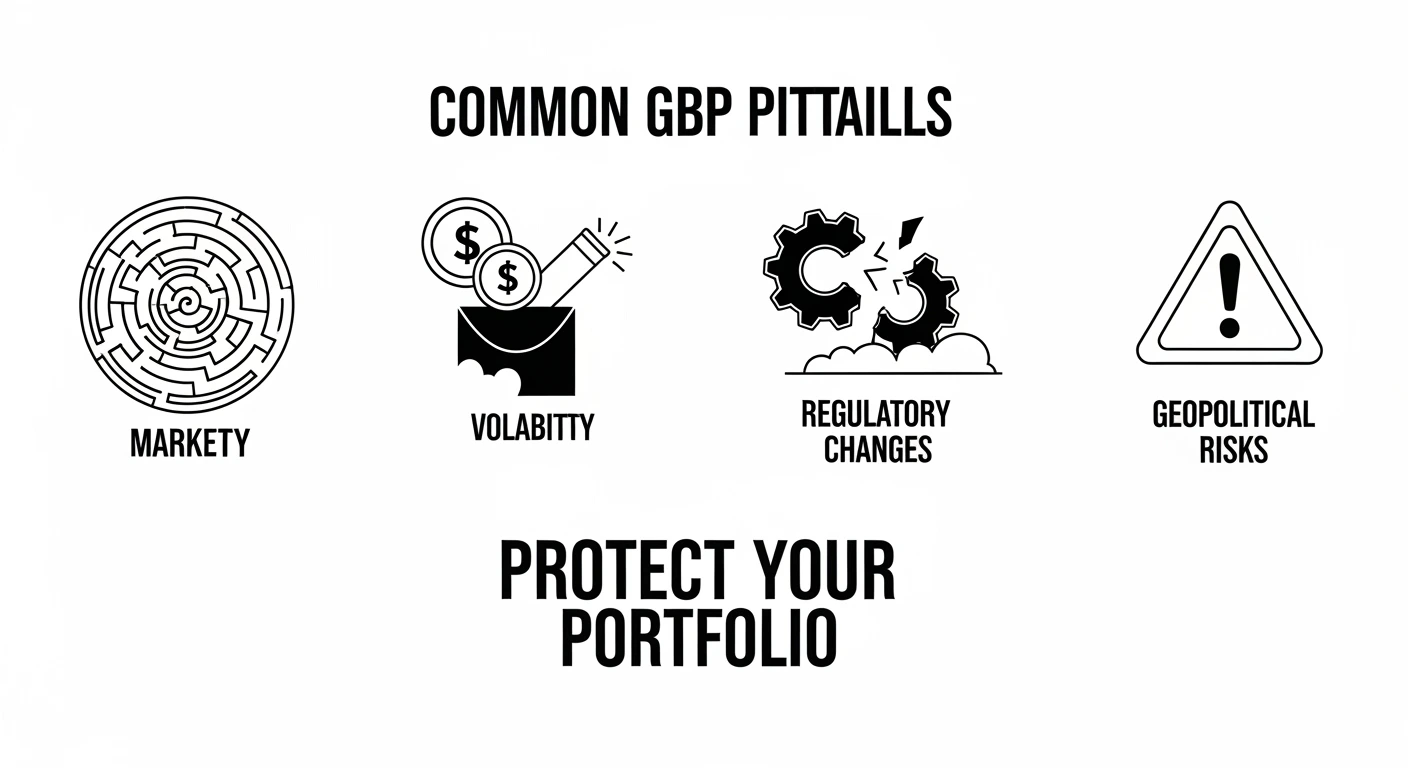
Even well-intentioned businesses can make mistakes that hinder their GBP performance. Avoiding these common pitfalls is as crucial as implementing best practices.
1. Keyword Stuffing in Business Name
This is a major violation of Google’s guidelines and a quick way to get your profile suspended. Your GBP name *must* be your actual, real-world business name. Do NOT add extra keywords or location modifiers (e.g., “Best HVAC Boston” if your business name is simply “Reliable HVAC”). Google is increasingly strict on this policy, leading to more profile rejections and suspensions in 2025.
2. Inconsistent NAP Data
As discussed, inconsistencies in your Name, Address, and Phone number across your GBP, website, and other online directories (citations) confuse Google and erode trust. Even minor variations can cause issues. Use tools to audit your NAP consistency regularly.
3. Neglecting Reviews
Failing to solicit reviews, or worse, not responding to them (especially negative ones), is a missed opportunity and a trust signal killer. An active, well-managed review section is paramount.
4. Outdated or Incomplete Information
Leaving sections blank or allowing information to become stale (e.g., outdated hours, old photos) suggests your business is inactive or unreliable. A dynamic, frequently updated profile is key.
5. Generic or Missing Photos
Using stock photos or having very few, low-quality images significantly underperforms against competitors with vibrant, authentic visual content. Invest in professional photography.
6. Violating Service Area Business (SAB) Guidelines
SABs that incorrectly display a physical address (when they don’t serve customers at that location) or that list broad geographic areas like “USA” or “Massachusetts” are violating guidelines and risk suspension. Be precise and comply with Google’s explicit 2025 guidelines on this.
7. Lack of Regular Engagement (Posts, Q&A, Messaging)
A GBP that is set up once and then ignored will quickly lose its effectiveness. Regular posting, monitoring Q&A, and responding to messages signals vitality and commitment to both Google and your customers.
—
Integrating Your GBP with Overall Local SEO: A Synergistic Approach for Boston Dominance

While your Google Business Profile is the undisputed centerpiece, it doesn’t operate in a vacuum. Its true power is unleashed when seamlessly integrated with your broader local SEO strategy. This holistic approach ensures maximum visibility and conversion for your Boston business.
1. Website Optimization: Your Digital Home Base
Your website is the natural extension of your GBP. Ensure it’s fully optimized for local search:
- Localized Content Hub: Create dedicated pages for each service location if you serve multiple Boston neighborhoods (e.g., “Plumbing Services in Southie,” “Marketing for Biotech Firms in Kendall Square”).
- Schema Markup: Implement Local Business Schema on your website’s footer or contact page. This structured data helps Google understand your business’s attributes (address, hours, reviews) more clearly, directly benefiting your GBP.
- Mobile-First Design: As discussed, this is paramount. Your website must load quickly and display flawlessly on mobile devices.
- Testimonials & Case Studies: Feature Boston-specific testimonials and case studies prominently on your website, reinforcing your local credibility.
2. Consistent NAP Across the Web (Citations)
Beyond your website and GBP, ensure your Name, Address, and Phone number are identical across all online directories, social media profiles, and industry-specific listings. These “citations” serve as votes of confidence for Google, reinforcing the accuracy and legitimacy of your business information. Tools like BrightLocal or Moz Local can help you audit and manage these citations effectively.
3. Cultivating Local Reviews & Building Trust
While GBP is the primary platform, reviews on other sites like Yelp, Facebook, TripAdvisor (for hospitality), and industry-specific platforms also contribute to your overall prominence and trust. Encourage reviews across these platforms and actively manage them. A strong, positive online reputation across the board significantly bolsters your GBP’s authority.
4. Local Link Building & Community Engagement
Earning high-quality backlinks from other reputable Boston-based websites (local news, community organizations, complementary businesses) is crucial. These links signal authority and relevance to Google. Active participation in local events, sponsoring community initiatives, and engaging with local influencers can also generate valuable mentions and links that boost your GBP’s prominence.
—
Measuring Your GBP Success: Insights & Analytics for Boston Businesses

You can’t optimize what you don’t measure. Google Business Profile provides robust “Insights” directly within your dashboard (accessible via Google Search or Maps by simply searching for your business name when logged in). Regularly analyzing these insights is crucial for understanding performance, identifying opportunities, and proving ROI.
Key Metrics to Monitor:
- How Customers Search for Your Business:
- Direct Searches: Customers who searched directly for your business name or address. This indicates strong brand awareness.
- Discovery Searches: Customers who found your business by searching for a category, product, or service (e.g., “pizza near me”). This highlights the effectiveness of your keyword and category optimization.
Analyzing the ratio between direct and discovery searches can inform your overall marketing strategy. A low discovery rate might signal a need for more category optimization or localized content.
- Where Customers View Your Business on Google:
- Search Results: How many times your business appeared in Google Search.
- Maps Results: How many times your business appeared in Google Maps.
This shows your visibility across Google’s different platforms.
- Customer Actions: (Your Conversion Data)
- Website Visits: Clicks to your website.
- Direction Requests: Requests for directions to your physical location (direct foot traffic).
- Phone Calls: Calls made directly from your GBP listing.
- Messages/Bookings: Interactions via messaging features.
These are your most critical KPIs, representing direct conversions from your GBP.
- Search Queries:
- The actual keywords people used to find your business. This is invaluable data. It shows you precisely what customers are typing and provides direct insights for refining your GBP description, posts, and website content for greater relevance.
- Photos:
- Photo Views: How many times your photos were viewed compared to other businesses in your category.
- Photo Quantity: Track the total number of photos on your profile.
More views and photos often correlate with higher engagement rates.
- Popular Times:
- See when your business is busiest, which can inform staffing, promotions, and customer service efforts. While not a direct ranking factor to manipulate, high engagement during peak times contributes to overall prominence.
Regularly (e.g., monthly or quarterly) download and analyze these insights. Look for trends, identify opportunities (e.g., a high number of discovery searches for a service you offer but low conversions might indicate a need to optimize that specific service description on your GBP), and present this data to track your local SEO ROI.
—
Conclusion: Your Google Business Profile — The Linchpin of Boston Local Domination
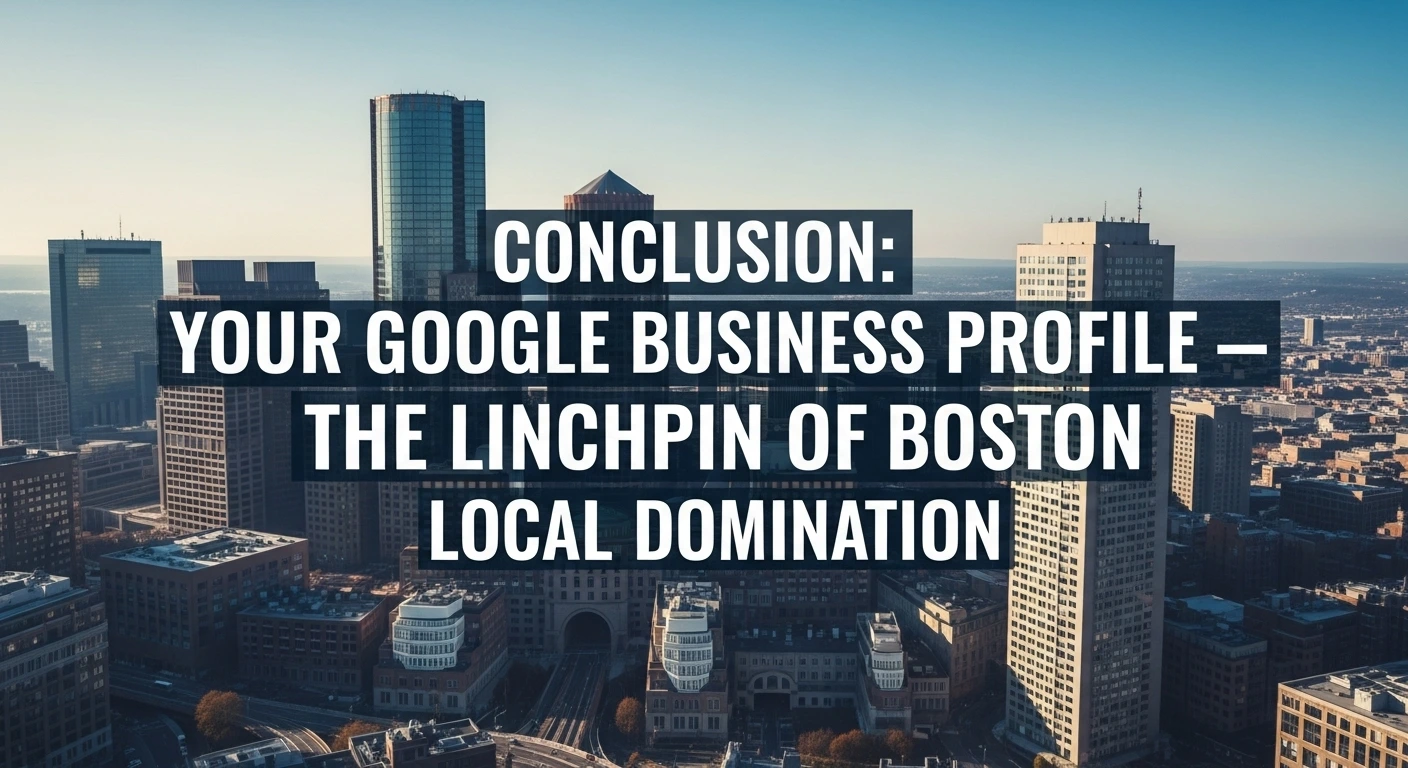
The economic shifts and evolving consumer behaviors in Boston for 2025 have created a new mandate for businesses: your digital storefront is now as critical, if not more critical, than your physical one. At the heart of this digital presence is your Google Business Profile. It’s not simply a listing; it’s a dynamic, interactive, and powerful lead-generation tool that directly impacts your visibility, credibility, and ability to convert high-intent local searchers.
By meticulously claiming and verifying your GBP, optimizing every single field for relevance and prominence, actively engaging with features like Google Posts and Q&A, and, most importantly, rigorously managing your online reviews, you transform your profile into a relentless engine for local visibility and customer acquisition. Avoiding common pitfalls and integrating your GBP strategy with your broader local SEO efforts will ensure you’re not just showing up, but truly dominating your local market segment in Boston.
Mastering your Google Business Profile is the single most impactful step you can take right now to drive foot traffic, generate qualified leads, and build enduring trust within your Boston community. It’s the strategic imperative for thriving in this new reality.
This comprehensive guide has provided the blueprint for mastering your GBP. But the journey doesn’t stop here. When considering a digital strategy partner in the region, a top-tier Massachusetts SEO agency understands these local nuances. In our next installment, we’ll delve into the crucial art of attracting precise, high-intent customers by mastering local search queries.
Is your Boston business ready to unlock the full potential of its digital storefront? Don’t let valuable local leads slip through your fingers. The experts at **seobostonma.com** specialize in crafting bespoke, data-driven Google Business Profile optimization strategies that deliver measurable results for Boston businesses like yours. Schedule a free consultation with our team today and let’s transform your GBP into your most powerful local asset.


